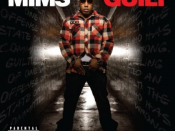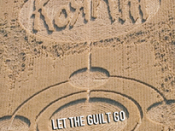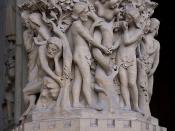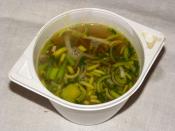Gary Soto Post AssessmentÃÂGuilt is the price we pay willingly for doing what we are going to do anywayÃÂ -Isabelle Holland. Guilt is something we create for ourselves. In the passage, Gary Soto emphasizes how guilty, paranoid, and shameful he felt in his inner conscience after stealing an apple pie. He expresses his guilt, shame, and paranoia by describing his outer self, his inner self, and the people around him.
How Soto describes his inner self emphasizes on how fearful he is. The great sense of paranoia that overcame him caused him to believe that the people around him knew about his sinful deed of stealing the pie. ÃÂA car honked and the driver knew. Mrs. Hancock stood on her lawn, hands on hip, and she knew. My mom, peeling a mountain of potatoes at the Red-Spud factory, knew.ÃÂ Soto also says that the ÃÂpie tin glared at him and rolled away when the wind picked up.ÃÂ
This impossible image exposes the fear in SotoÃÂs mind that even the pie tin is aware of his corrupt actions.
Religion also causes Gary Soto to feel shameful and disgraceful. His references to God and being thirsty reveal his fear. Soto playing with his frisbee, states ÃÂI flung it again until I was bored and tired" and "I returned home to drink water", Soto attempts to get away from the anguish of his guilt by playing around and distracting himself. He also refers to Adam and Eve and their thirst after taking the forbidden fruit. Soto refers to himself and young and innocent, ÃÂholy in every bone.ÃÂ However, he still steals the pie, and is paranoid of punishment from God for the rest of the day.
How Soto describes his outer-self emphasizes on how ashamed and disgusted he was about himself stealing the pie. He refers to the sweat under his arms as ÃÂthe juice of guilt.ÃÂ As if sweat isnÃÂt gross enough, when described as juice, from guilt, itÃÂs quite repulsive. Gary Soto obviously felt disgusted with himself, and nervous, after committing this crime. When Cross-Eyed Johnny whispers to him, ÃÂYour hands are dirty,ÃÂ Soto takes it literally in a way, his hands ÃÂstickyÃÂ and ÃÂdrippingÃÂ. Soto, feeling gluttonous and dirty, and took Cross-Eyed JohnnyÃÂs comment as an insult, saying he ÃÂfelt badÃÂ, and even more guilty.
By emphasizing the effects of paranoia, religion, and feelings of shame, Gary Soto is able to revive and recreate his traumatic childhood experience. His paranoia caused his intense insecurity and anxiety about everyone and everything around him, whereas the ideas of religion emphasized morally in ethical values of the sin he has committed. The shame Gary Soto felt led to regret in the bad deed he has committed and awakened his moral conscience that he has done something wrong and enjoyed it. Because of these three major factors, Gary Soto has clearly revived his experience of his first theft as a young innocent child.





